Do you care about the culture of your organization? Are you actively trying to shape or improve it?
If you answer yes to either of those questions, you probably heard of Patty McCord and Netflix.
McCord, Reed Hastings, and others worked together to create the now famous Netflix Culture Deck.
These slides inspired many other companies to do the same, creating a whole library of culture decks.
Lessons in their own words - Our favorite Patty McCord quotes on culture
When an idea reaches the world, it's hard to predict how the world will respond to it. Typically, there are parts that resonate more, while others that may be twisted or forgotten.
With Powerful by Patty McCord, she takes the opportunity to explain in her own words how what was codified in the Culture Deck was actually executed in the workplace.
Today, we take a look at some of the best lessons and takeaways after reading it:
Table of Contents - Culture lessons in Powerful by Patty McCord
- Face the challenges of a fast-changing world together
- Managers have one, essential job
- Solve problems with discipline, not process
- Great teams want to take on great challenges
- Focus feedback on actions
- Lead by example, especially when it's hard
- Feedback should be direct, not anonymous
- Great hiring is hard work
- Don't waste your time fighting in the perks war
- Avoid office politics by embracing transparency
- You're a team, not a family
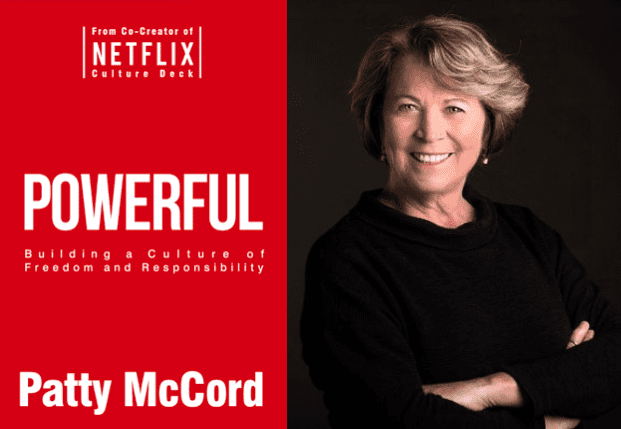
11 Lessons on Culture from Netflix's Patty McCord in Powerful
While we're going to dig into some great lessons to learn from Netflix from these Patty McCord quotes, there's an important caveat to keep in mind: Netflix is a great company to learn from, but nobody's perfect.
As the introduction in Powerful by Patty McCord puts it:
"We had plenty of stumbles, some very public. And we didn't have a big aha moment about how to meet our challenges; we evolved a new way of working through incremental adaptation: trying new things, making mistakes, beginning again, and seeing good results."
As you look at these approaches that worked for Netflix, consider how you could experiment with them at your company. The best additions will be ones that feel congruent with you and your team.
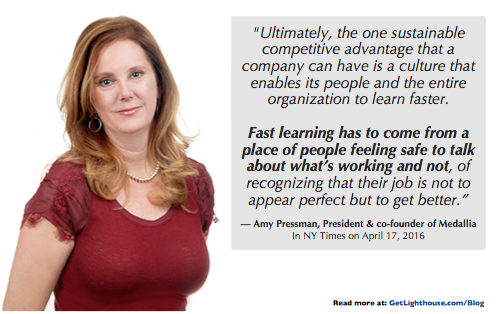
1) Face the challenges of a fast-changing world together.
"The most successful organizations...will be the ones in which everyone, on every team, understand that all bets are off and everything is changing - and thinks that's great."
Being comfortable with change is not easy. It can feel safer to be a slow moving, command and control organization where senior leaders have all the answers.
One of the biggest mistakes poor leaders and managers make is to want to "be the boss." Usually that means thinking that they tell everyone what to do, and do not want anyone to challenge them. In today's rapidly changing, hyper competitive world, that approach is fatal.
Netflix counters this by encouraging healthy debate and discussion at all levels, by all people. They even have gone so far as to have executives debate in front of an audience on big decisions.
The executive debate is particularly powerful, because it's a very public symbol of this value.
If you want to help your organization embrace change, then you must build up the ability for everyone to speak up. The insights you need are buried within your people.
If this is a big change, then look to make public acts for all to see the demonstrate that new willingness to hear everyone's thoughts, questions, and ideas.
Further Reading:
- Learn how to bring about a key culture change you want to make.
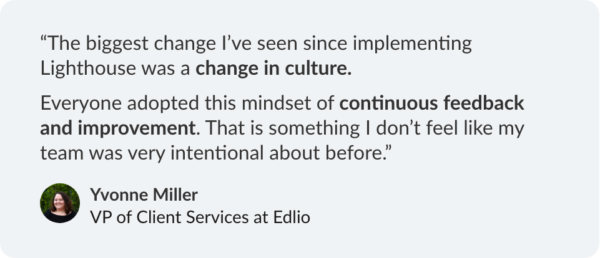
2) Managers have one, essential job:
"A business leader's job is to create great teams that do amazing work on time. That's it. That's the job of management."
Depending on the company and culture, a leader's job can vary widely. What's measured gets managed, and too often leaders are not measured on the quality of their teams or what they deliver.
Whether it's leaning to much towards a bottom line revenue number despite the person being a tyrant people flee, or outsourcing recruiting and retention to HR, many leaders aren't focusing on what really matters most.
As we've discussed many times on the Lighthouse blog, people leave managers, not companies. This means the actions of a manager to make their team great, and to push them to do their best work are paramount.
Best of all, when managers focus on a few essential like she suggests above, you get some additional benefits. As Patty McCord describes it:
"The more time managers spend communicating and elaborating and being transparent about the job to be done, about the challenges the business is facing and the larger competitive context, the less important policies, approvals, and incentives are."
If you and your managers build great teams, they will help you solve your toughest problems.
And while you help them focus on the most important work, many other distractions will melt away; the root problem of many dysfunctional teams is due to misaligned incentives and different visions. If everyone is moving in the same clear direction, and you've hired good people, you'll be amazed how much better things will go.
Further Reading:
- Is your team showing signs of low morale? Learn how managers can cause low morale and how to fix it.
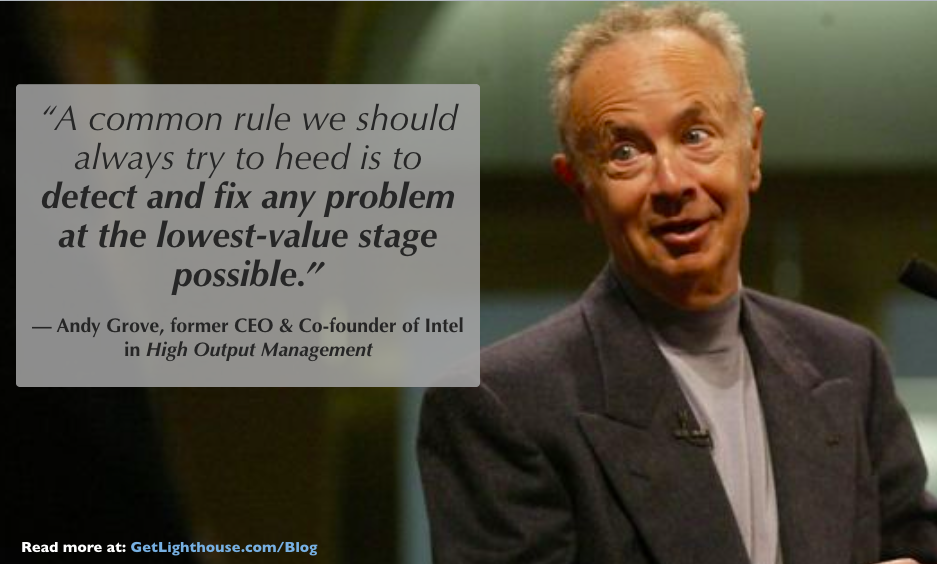
3) Solve problems with discipline, not process.
"When engineers start to whine about a process ...you want to really dig into what's bothering them, because they hate senseless bureaucracy ...But they don't mind discipline at all."
As your company grows, your processes will change. What works when you all fit around one table will not work when you're much bigger. As you transition to handle that growth, you'll begin to implement all kinds of changes that can be met with resistance.
Rather than running away from or ignoring this, lean into it. Find out why they're against a change, and work with them to reframe it as addressing problems everyone sees and feels.
When your company grows, there are more people to keep connected, more to coordinate, and the stakes are higher. It's only logical to be more disciplined.
It may seem like a subtle change from "process" to "discipline", but it can make a big difference in how your team thinks about the changes that are needed. Many people dislike "process", but most people agree some level of discipline is helpful.
Throughout Powerful, Patty McCord shared how Netflix faced various challenges where they leaned into "discipline." Rather than succumbing to making more and more rules, they trusted their people and asked tougher questions like:
- Are expectations being clearly communicated or was misunderstanding a key cause of this?
- Is this problem created by an outlier who may not be a fit at Netflix?
- Would someone acting as a responsible adult do this?
By challenging themselves with harder questions about the root cause of problems, they avoided having to make tons of bureaucratic-feeling rules and processes. This has allowed them to retain excellent people they would have otherwise lost due to frustration over politics and process.
Further Reading:
- Solving problems starts with learning from your team. Try asking some of these 150+ One on One Meeting questions when you meet with your team
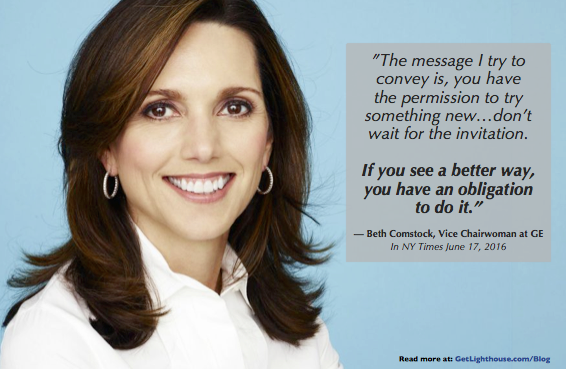
4) Great teams want to take on great challenges.
"[Great teams] are created by hiring talented people who are adults and want nothing more than to tackle a challenge, and then communicating to them, clearly and continuously, about what that challenge is."
Building on the first quote, Patty McCord believes that an essential part of Netflix's success is how they challenge their people to help solve their biggest problems. There are no ivory towers there. Instead, they lean into engaging their people to help solve the company's biggest challenges.
A word like "Transparency" can feel loaded these days. Is it publishing your revenue metrics so the whole world can see it? Or maybe it's allowing everyone to read any email anyone sends at your company?
Netflix embraces being transparent about their biggest challenges and opportunities. They work hard to hire the best people and then empower them to help solve their problems. As it turns out, doing so helps them attract the best people as McCord wrote:
"Excellent colleagues, a clear purpose, and well-understood deliverable: that's a powerful combination."
Are your employees aware of your business's biggest challenges? Do you listen to their ideas on how to address it? If you hire good people, and communicate your real needs with them, they will help you overcome them and grow.
Further Reading:
- If you aren't getting enough feedback from your team, check this post to find out how to get more team feedback.
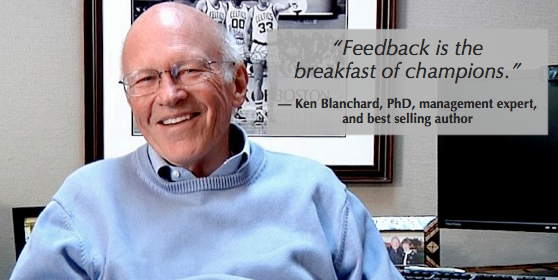
5) Focus feedback on actions.
"The most important thing about giving feedback is that it must be about behavior, rather than some essentializing characterization of a person, like 'you're unfocused.'"
When you build a culture like Netflix's that values transparency, communication, and ownership, feedback is a hugely important habit.
But not all feedback is created equal.
You cannot sugarcoat feedback, or the spirit behind it and it's importance can be missed. At the same time, you don't want to make it a personal attack, either. That will only cause them to become defensive and resistant.
That's why Patty McCord is in agreement with our approach to giving feedback, which includes citing specific examples and being explicit about expectations and solutions going forward.
Make it about an action, not the person, and you may be surprised how much easier feedback discussions become.
And the payoff? HUGE. As McCord quotes in her book, companies that "fostered honest feedback and had more open communication" had a 270% better return on investment over a 10 year period than those that did not.
Can you afford to leave 270% of returns on the table? If not, try some of these approaches to get started communicating feedback more effectively:
- How to Give Constructive Feedback to Motivate and Improve Your Team
- How to Motivate an Employee Who is Underperforming
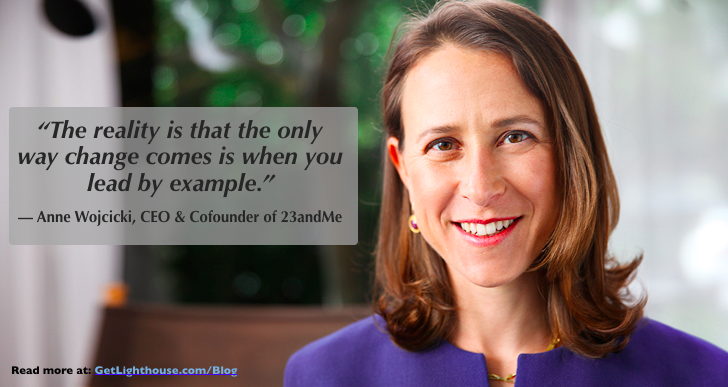
6) Lead by example, especially when it's hard.
"You have to exhibit the courage you want people to have."
Actions speak louder than words. What you do as a leader says more than even the most inspiring speech. Lead by example to have a great company culture.
If you're trying to improve your culture and change how everyone does things, you need to start with yourself. Ask yourself: what actions can you take to show you value the things you want to start making a part of your culture?
In the case of Netflix, that included admitting when you're wrong, even publicly.
In a heated debate between the CEO, Reed Hastings, and another executive, they could not come to an agreement. So they let the data do the talking and ran an A/B test. As Patty McCord recalls in Powerful:
"When the data showed Tom was right, Reed openly announced to that same group, "Look, I debated hard against this, but Tom was right. Great job."
If the CEO of Netflix can admit he's wrong, then so can any staff member in the organization.
If you aren't willing to live the values you want your team to exhibit, don't make them values. Otherwise, those un-lived values will become the ones people snicker at and mock when complaining to their friends about their job.
Further Reading:
- If you're a founder, it's important to understand how you can wreck your company culture.
- Want to make sure your next startup job has a great culture? Ask these questions of the CEOto ensure they have a great culture.
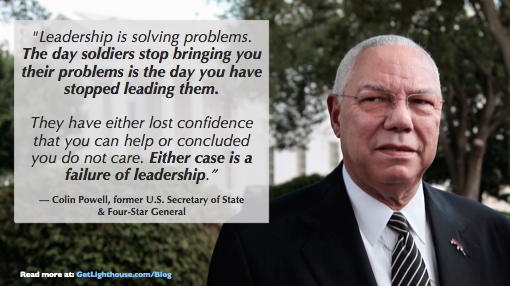
7) Feedback should be direct, not anonymous.
"If you want to know what people are thinking, there is no good replacement for simply asking them, best of all face to face."
Netflix had performance reviews at one point, but McCord eventually helped lead to their removal.
Why? She felt they were a huge waste of time with limited ROI.
She loves challenging the companies she consults with and advises by asking their executives how reviews help the business and customers. They are usually stumped.
However, this does not mean they go without any feedback at all. She loves their "Start, Stop, Continue" system where people are told what they should start, stop, and continue doing by their peers.
Essential to its success was that the feedback was direct, not anonymous. Many engineers pushed back at anonymous feedback, because their code always shows who made what mistake or comment, so why would this be any different?
As it turns out, making the feedback signed, led to more "thoughtful and productive" feedback.
If you want a culture of candor and accountability, you may want to consider simple, direct feedback, too.
Further Reading:
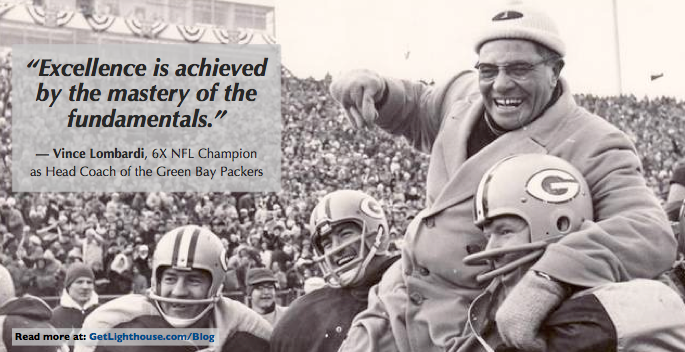
8) Great hiring is hard work.
"Building the muscle to hire great people is a huge competitive advantage."
If you want to accomplish great things, you need to hire the people to help you do it. This is an idea that Patty McCord and her HR team embraced at Netflix.
But they didn't do it alone. They didn't let hiring managers push building a great team completely off their plate to a recruiter. Instead, the managers were deeply involved every step of the way to make sure they could meet their team building goals. Remember the previous quote; creating great teams is half of a manager's job.
However, collaborating with HR to hire is just the beginning of building a great team. It also includes asking tough questions like, "Are we limited by the team we have not being the team we should have?"
Asking hard questions like this help you not only hire good people now, but make sure you are thinking about what you need in the future. As the Wayne Gretzky attributed saying goes, you should skate where the puck is going.
Further Reading:
- Need to get better at hiring? Make sure you avoid these common mistakes managers make hiring.
- Listen to our episode on hiring from the Creating High Performing Teams podcast
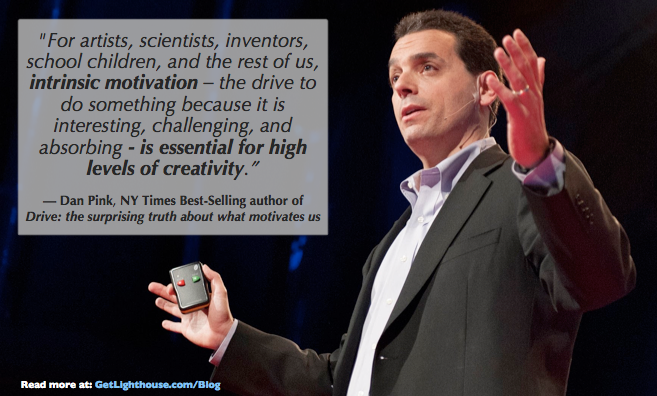
9) Don't waste your time fighting in the perks war.
"It's best for both [employees] and their companies if the reason they're happy is that they're doing great work with great people."
We've talked about this a few times on the Lighthouse blog and the data continues to show through: Perks don't work. They're like candy: a great sugar rush (during interviews) and then a crash (self-entitlement, greed, etc).
When Patty McCord speaks at events or to executives, she's often asked about perks. Her views are clear: they're a waste of effort. As she puts it:
"If someone wants to walk out your door and go to another company because it serves better craft beer, you should just say to that person, "Have fun! Oh, and let's do happy hour at your place soon."
All that effort and money you spend on having crazy perks? Try investing that in things that really make a difference:
- Having great managers people enjoy working with.
- Providing (or reimbursing for) the training that will help your employees grow into future roles.
- Increasing salaries to help you compete for the best possible talent that others will be excited to work with.
Of course, this is not to say have no perks at all. A nice office with some snacks so that people aren't hungry and wandering the streets mid-afternoon makes business sense.
However, if you're having staff complain that the gym reimbursement is only $50 a month and that's not enough for Equinox, you may want to consider how your people are thinking about perks at work.
There are more important things that actually impact whether good people look for new jobs or stay where they are. Focus on those things. Leave the companies that don't have good people and fulfilling work to compete on hallow offers like shiny perks.
Further Reading:
- In a downturn, you can't afford new perks, or may even have to cut some you already had. Learn 5 things you can do to keep your team happy in a recession instead.
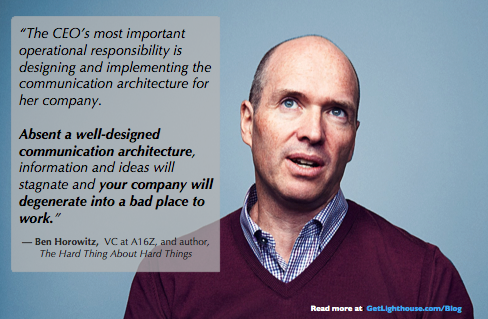
10) Avoid office politics by embracing transparency.
“Holding people to this standard of transparency has many benefits. One is that it puts the clamp on politicking and backstabbing.”
As the saying goes, “sunlight is the best disinfectant.” Shining a light on things that happen behind closed doors and that is about position and status instead of results is how you nip politics in the bud.
Yet, the bigger a company gets, the harder it is to stop it.
That’s why specifically embracing transparency is so important. Because when information is guarded or hidden is exactly the environment that allows for politics to thrive.
As Patty McCord writes:
“Think about it. If I'm going to stab someone in the back, I have to go get a knife, hide it, wait until I'm alone with that person, and catch them off guard. I'd better be sure to kill them or they'll come back after me. It takes planning and it's high risk. Wouldn't it be a whole lot easier just to tell that person, "It makes me crazy when you do that, so please stop!"
In addition, to avoiding back stabbing, transparency also has the added benefit of making your organization more meritocratic.
If promotions and rewards are given for hitting clear, specific goals, then there’s no reason to have any battles in back channels. You incentivize the behaviors you want more of: hard work to get results that help your team and company succeed.
Now, all of this sounds nice, but you need to remember: all of this starts with you.
If you’re not transparent, no one on your team will, so be sure that you’re setting the example you want in your culture.
Further Reading:
- Get more perspectives on corporate culture with our unfiltered truths here.
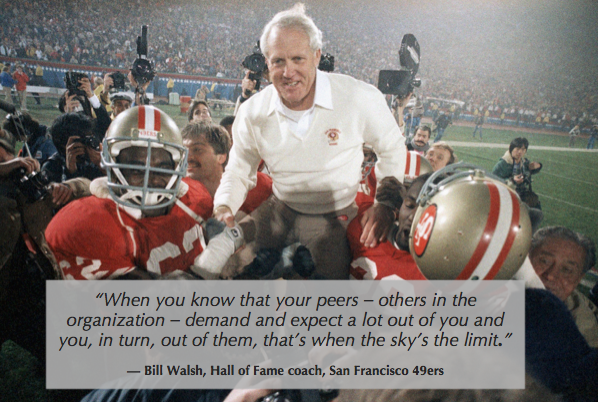
11) You're a team, not a family.
"Just as great sports teams are constantly scouting for new players and culling others from their lineups, our team leaders would need to continually look for talent and reconfigure team makeup.
We set the mandate that their decisions about whom to bring in and who might have to go must be made purely on the basis of the performance their teams needed to produce in order for the company to succeed."
This is one of the more controversial statements that Patty McCord has said in many of her talks, and in Powerful.
There's a big difference between a team and a family: teams change regularly and are optimized to win at all times, while families strive to stick together no matter what.
Having a team attitude can lead to some tough decisions, but you cannot argue with their results. The success of Netflix, evolving from a mail order DVD company to a software streaming system, to now a major media empire has required different staff at each stage.
Having a willingness to either aggressively develop talent or encourage their departure has helped Netflix evolve faster. Meanwhile, to soften what can sometimes be a difficult blow, Netflix also gives generous severance packages. It may not be fun getting let go because your skills are no longer needed, but a big check can help soften the blow and any hard feelings.
As important, Patty McCord highlights this is a two-way street; Netflix embraces the fact that people may want to leave the company for a better or more interesting opportunity.
Like so many things Netflix does, they walk the talk of this belief. They regularly encourage employees to interview for jobs at other companies; it helps everyone know their market value and make sure they're happy with the job they have.
Treating employees like teammates instead of family can be scary if you've never thought that way, but if you're scaling your business or making significant changes, you may have no choice. Be mindful of the approach you take; loyalty is great, but not if it's at the cost of your team member's happiness and the needs of your business.
Further Reading:
- If you want to think about your company like a team, why not study a great team and learn from their leader? Here's our favorite lessons from Bill Walsh's The Score Takes Care of Itself.
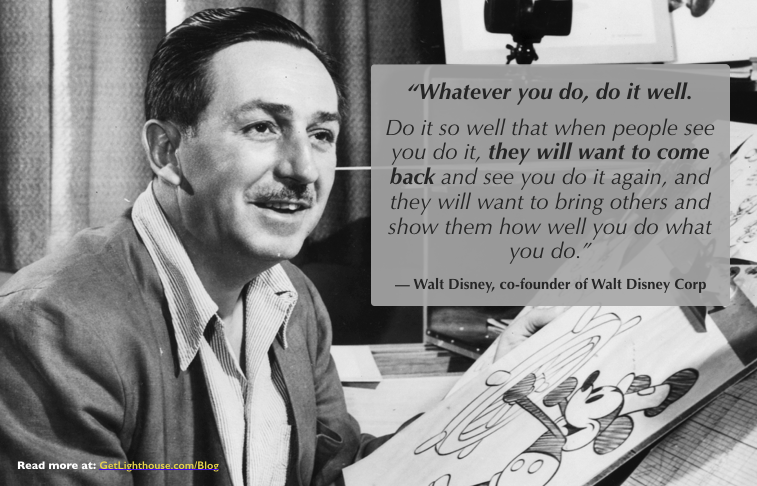
Conclusion: You're building your system, not Netflix 2.0
"You've got to constantly monitor the message and update it."
What message are you sending your employees? What is the culture you're living with your actions each day?
While I hope you found some inspiration for your company in the above, don't try to be exactly like Netflix. The tactics that help reinforce the values that they have work uniquely to them.
Your company and team have their own recipe of what's important and how you work.
When you look to make changes to your culture, consider how it works versus your other values. Ideally, you want them to compliment each other.
Netflix's culture is a perfect example: Freedom and Responsibility.
They have many fewer rules than other companies, because they believe in giving their people freedom. However, that only works because they also give everyone the responsibility of acting like accountable adults.
The two feed off each other as the freedom they give attracts the good people who can handle it. Meanwhile, by holding people accountable through the responsibility value, they ensure that anyone who can't handle the freedom is removed. This avoids punishing everyone for one person's issues, which would start stifling freedom.
Take some time this week to reflect on how your values affect each other. You may find some in conflict, or gaps that should be filled by adding a new, complimentary value. When you start thinking this way, you're ready to start iterating towards a great culture like the one Patty McCord writes about at Netflix in her book Powerful.
There are many more great insights in her book, so if these lessons were interesting, I highly recommend you pick up a copy here.
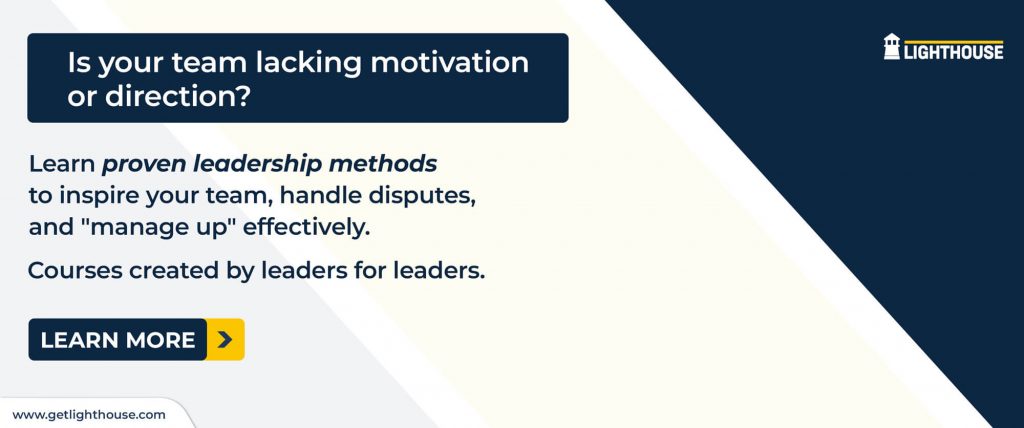
What did Patty McCord do for Netflix?
Patty McCord was the chief talent officer at Netflix. She joined the company in 1998, after her former boss at Pure Software, Reed Hastings, asked her to join his new startup when Pure Software was sold. This new startup was called Netflix.
Patty McCord was instrumental in creating the Netflix Culture Deck, one of the most influential documents on work culture in Silicon Valley. Her experience in cultivating a strong, ethical culture was the basis of her best selling Amazon Top 100 business book Powerful: Building a Culture of Freedom and Responsibility, which was published in 2018.
Where is Patty McCord from?
Patty McCord served as the chief talent officer at Netflix for fourteen years, where she was instrumental in the creation of the Netflix Culture Deck. The Netflix Culture Deck is considered one of the most important documents to ever come out of Silicon Valley by tech executives and philanthropists like Sheryl Sandberg.
As of 2023, Patty McCord resides in Santa Cruz, California.
Who is the chief people officer at Netflix?
Sergio Ezama was named Netflix’ chief talent officer in 2021. He previously made a name for himself als the chief talent officer of PepsiCo.
He is following in the footsteps of Patty McCord, who was Netflix’ chief talent officer from 1998 to 2012. Patty McCord helped create the renowned Netflix Culture Deck, which is seen as the most influential document on strong, ethical company cultures to ever come out of Silicon Valley.
What does Patty say is the most important thing in working with others?
"You have to exhibit the courage you want people to have."
According to Patty McCord, you have to lead by example to have a great company culture. If you're trying to improve your culture and change how everyone does things, you need to start with yourself.
Actions speak louder than words. What you do as a leader says more than even the most inspiring speech. Patty McCord challenges our notions of leadership and demands that we ask ourselves: what actions can we take to show we value the things we want to start making a part of our culture?




